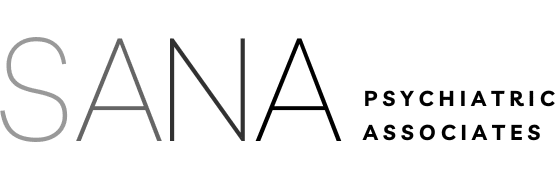TMS therapy is an FDA-cleared, non-invasive treatment for depression and Obsessive-Compulsive Disorder (OCD) that is performed in an outpatient setting by trained professionals. It does not require surgery, anesthesia, or the implantation of electrodes, making it a safe and well-tolerated option for many patients.
However, as with all medical treatments, there are some side effects and risks to consider. Most side effects are mild, temporary, and tend to subside as treatment progresses.
Common Side Effects of TMS Therapy
TMS therapy is known for having fewer systemic side effects compared to antidepressant medications. The most commonly reported side effects include:
- Mild Headaches: These typically occur in the first few sessions and can be managed with over-the-counter pain relief.
- Scalp Discomfort or Tingling: Some patients feel a tapping sensation on the scalp where the treatment is applied, but this discomfort generally diminishes over time.
- Jaw or Muscle Twitching: In rare cases, the magnetic pulses may cause minor muscle twitches, particularly around the face or jaw.
- Fatigue: Some patients report feeling slightly tired after a session, though this effect is short-lived and does not interfere with daily activities.
Precautions and Safety Considerations
Certain patients may not be eligible for TMS therapy due to safety concerns. This includes individuals with magnetic metal implants, implanted electronic devices, or a history of seizures. It’s important to discuss your medical history with your psychiatrist to determine whether TMS is the right treatment for you.
Additionally, patients who fall into the following categories should consult their physician to assess whether TMS therapy is appropriate:
- Individuals with certain neurological conditions or severe psychiatric disorders.
- Patients who are pregnant or nursing.
- Those who have a history of substance abuse or psychotic disorders, such as schizophrenia or bipolar disorder.
For more detailed safety guidelines and potential side effects, please visit BrainsWay Safety Information.
How TMS Therapy Compares to Medications and ECT
One of the biggest advantages of TMS therapy is that it does not come with the systemic side effects that are often associated with antidepressant medications. You won’t experience common medication-related issues such as:
- Weight Gain
- Sexual Dysfunction
- Fatigue
- Dry Mouth
Unlike electroconvulsive therapy (ECT), TMS does not involve inducing seizures or require anesthesia, and it does not affect memory or cognitive function. Patients remain fully awake during treatment and can return to their normal activities immediately after each session.
Minimizing Risks and Monitoring Safety
At SANA Psychiatric Associates, our team follows up-to-date safety guidelines to minimize risks and ensure that each patient receives personalized care. Patients undergo regular assessments to track their progress, and adjustments to the treatment settings can be made if any discomfort arises. If you experience any unusual side effects during your treatment, we encourage you to reach out to your physician immediately for support.
Take the Next Step Toward Relief
TMS therapy offers a safe and effective way to manage depression and OCD without the systemic side effects of medication. If you’re ready to explore whether TMS therapy is right for you, contact us today at (214) 705-2246 to schedule a consultation and learn more about your treatment options.
Are there any safety concerns or side effects from the treatment?




